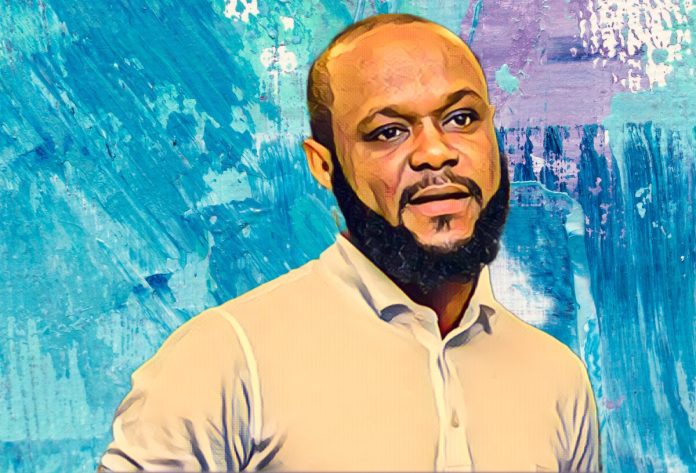Leaked corporate documents have unveiled that Seyi Tinubu, son of Nigeria’s President Bola Tinubu, co-owned an offshore company with Ronald Chagoury Jr., son of billionaire Ronald Chagoury. The revelation has raised significant concerns over transparency and potential conflicts of interest, especially as it coincides with the awarding of a $13 billion contract to Hitech Construction Company Ltd., a subsidiary of the Chagoury Group, without a public bidding process.
The documents show that the offshore company, incorporated eight years ago in the British Virgin Islands, was partly owned by the younger Tinubu alongside Chagoury Jr. This connection has drawn scrutiny given the recent awarding of the Lagos-Calabar Coastal Highway project to Hitech, which critics allege was influenced by longstanding personal and business ties between the Tinubu and Chagoury families. The highway project, one of the largest infrastructure undertakings in Nigeria, has become a focal point of controversy due to the lack of transparency in the contract’s allocation.
The news of this partnership between Tinubu and Chagoury adds another layer of complexity to the unfolding story, as Seyi Tinubu is also a director on the board of CDK Integrated Industries, another Chagoury Group subsidiary. This dual involvement in companies connected to the Chagoury family has led to growing concerns about the influence of personal relationships on government contracts.
Minister of Works David Umahi, in defending the contract award, has maintained that due process was followed. However, the lack of a competitive bidding process has led to widespread criticism, with many questioning the fairness and integrity of the deal. The matter has now been taken to court, where it will be further examined.
The leaked documents were part of a broader investigation by the International Consortium of Investigative Journalists (ICIJ), which has been probing offshore financial dealings around the world. These documents reveal that Seyi Tinubu was a majority shareholder in the offshore company alongside Ronald Chagoury Jr., raising questions about the potential for conflict of interest, especially in the context of the lucrative highway contract.
The British Virgin Islands, where the company was incorporated, is known for offering corporate anonymity, making it a popular jurisdiction for those looking to keep their business dealings private. The discovery of this offshore company has lifted the veil of secrecy that previously surrounded the business relationships between the Tinubu and Chagoury families. Despite the leak, the current ownership status of the company remains unclear, as neither Seyi Tinubu nor Ronald Chagoury Jr. has responded to requests for comment.
The relationship between the Tinubu and Chagoury families is not new. The Chagoury brothers, Ronald and Gilbert, have been associated with President Bola Tinubu for many years, with their business empire benefiting from various government contracts. This long-standing relationship has often been the subject of speculation, but the recent revelations have brought these concerns to the forefront.
In the midst of these controversies, it is worth noting the Chagoury family’s checkered past. In 2000, Gilbert Chagoury was convicted in Switzerland for laundering money on behalf of Nigeria’s former military dictator, Sani Abacha. This history of legal and ethical issues only adds to the concerns surrounding the recent contract award to Hitech Construction.
President Tinubu’s praise of the Chagoury brothers during the launch of the Lagos-Calabar Coastal Highway has further fueled speculation about the nature of their relationship. At the event, Tinubu described the Chagourys as “worthy stakeholders” who “believe in the future of Nigeria.” However, the subsequent leak of the offshore partnership has cast a shadow over these commendations, raising doubts about the transparency and motivations behind the contract award.
This latest revelation is just one in a series of controversies that have dogged Seyi Tinubu, whose business ventures have frequently come under scrutiny. His advertising company, Loatsad Promomedia, has rapidly risen to prominence in Nigeria’s outdoor advertising industry, leading to accusations that its success has been bolstered by his father’s political influence.
Further fueling public outrage, Seyi Tinubu’s opulent lifestyle has been a source of criticism, especially in a country where many struggle with economic hardship. His acquisition of luxury items, such as a Richard Mille RM 055 watch worth $550,000, has drawn sharp criticism on social media. The fact that Seyi owns multiple Richard Mille watches, each valued at millions of naira, has only intensified the backlash.
In 2021, a Bloomberg investigation linked Seyi Tinubu to the acquisition of a $10.8 million property in London. This property, purchased through Aranda Overseas Corp., another offshore company where Seyi is listed as a principal shareholder, was reportedly associated with fraudulent activities. The property was seized by Nigeria’s Economic and Financial Crimes Commission (EFCC) in 2016 as part of an investigation into Kola Aluko, a close associate of former Petroleum Minister Diezani Alison-Madueke, who was implicated in large-scale corruption.
These controversies surrounding Seyi Tinubu have not gone unnoticed. Recently, he faced widespread criticism for using a presidential jet to attend a polo match in Kano while many Nigerians struggled with rising living costs. This incident was part of a broader pattern of behavior that has led to questions about the young Tinubu’s influence and access to state resources.
President Bola Tinubu recently barred his son and others from attending the weekly meetings of the Federal Executive Council, the government’s highest decision-making body. The president’s decision came after he noticed what he described as “undue access” by individuals, including Seyi, during these meetings. “That is not acceptable,” the President declared, signaling his awareness of the growing concerns about his son’s involvement in government affairs.
The revelations about Seyi Tinubu’s offshore partnership with Chagoury raise serious concerns about transparency, accountability, and the potential for corruption. The involvement of the president’s son in controversial business dealings only adds to the perception of systemic corruption.



